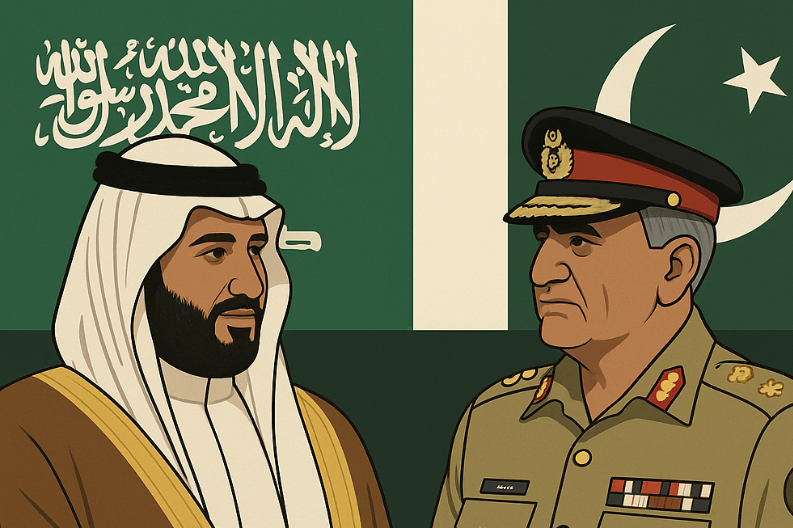The signing of the new Pakistan-Saudi Arabia defence pact on September 17 has created new discussions in West Asia and in India. The deal was signed by Saudi Crown Prince Mohammed bin Salman and Pakistan’s Army Chief Asim Munir after a regional security crisis triggered by Israel’s missile strike on Qatar earlier this month.
The agreement includes a major clause: “Any aggression against either country shall be considered an aggression against both.” This line has worried many in India. People now ask if Saudi Arabia will support Pakistan in case of a conflict, and if this could be the start of something like an Islamic NATO.
Former Indian ambassador to Saudi Arabia, Talmiz Ahmad, explained that the issue is not only about India and Pakistan. He believes it is more about Gulf nations preparing new security plans because the United States no longer wants to remain the main protector of the region. He also noted that China, Russia, and Turkey could play bigger roles as this situation unfolds.
According to Ahmad, India should focus on building stronger ties with Gulf nations. This can give India more influence and balance in West Asia. He also pointed out that India should closely watch China’s growing presence, since Beijing already has strong connections with both Pakistan and Saudi Arabia.
Former High Commissioner to Pakistan, Sharat Sabharwal, said he does not see the pact leading to a joint military attack. He argued that Saudi Arabia does not have a strong or experienced army that can fight wars alongside Pakistan. Instead, he thinks Saudi support may come in other forms, such as giving oil on credit or financial aid to Pakistan’s struggling economy.
Colonel Rajeev Agarwal, a defence researcher, also urged caution. He reminded that Pakistan has signed defence agreements before, including with the U.S., SEATO, and CENTO in the 1950s. But during wars with India in 1965 and 1971, and even during Kargil in 1999, no country actually sent troops to help Pakistan. At most, allies only provided some weapons.
This history shows why India should stay watchful but not alarmed. However, Agarwal warned that the new pact might encourage closer ties between Pakistan, Turkey, and even the U.S. That could still pose challenges for India.
Saudi Arabia itself also has strong economic ties with India. The Kingdom is working on diversifying its economy beyond oil, and India offers big opportunities in trade, energy, and technology. For this reason, many experts think Riyadh would not risk its strategic partnership with New Delhi.
India’s Ministry of External Affairs also responded carefully. Spokesperson Randhir Jaiswal said India and Saudi Arabia share a “deep strategic partnership”. And expressed hope that both countries will respect each other’s interests.
Experts also suggested possible ways forward. Ahmad recommended using platforms like RIC (Russia-India-China) to build stronger dialogue with Gulf countries. Others said India should also be ready to speak firmly, even with allies like Israel, if regional stability is threatened.
The key question now is whether other Gulf nations will join this security framework. If that happens, West Asia’s power balance could shift further. For India, the challenge will be to stay alert, strengthen old partnerships, and create new diplomatic tools to protect its interests.
In conclusion, the new Pakistan-Saudi Arabia defence pact may not bring immediate military danger to India. But it shows how quickly regional alliances are changing. For India, this means carefully watching developments, staying active in diplomacy, and ensuring its role in West Asia remains strong.



